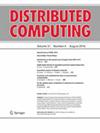从自由国家到民主社会国家:经济刑法作为宪法经济秩序保护的可能性条件
IF 1.3
4区 计算机科学
Q3 COMPUTER SCIENCE, THEORY & METHODS
引用次数: 0
摘要
本案文的目的是回答以下问题:关于巴西选民选择以何种方式实现有尊严的生活,《经济刑法》是否是保护和发展具体化《巴西联邦共和国宪法》所载宪法经济秩序的可能条件?因此,为此列出了四个目标:a)证明滥用经济权力,通过任何形式的调整或公司之间的协议,在公共行政的条件下,支配或部分消除竞争,损害自由竞争;b) 核实《经济刑法》在市场支配地位、消除竞争和任意增加利润方面提供的保护是否保证了宪法规定的平等原则(1988年《宪法》第5条第一项);c) 分析由于目前国家一级的腐败事件,更具体地说是卡特尔的形成,国家公共行政部门是否可以被定性为违反自由竞争或其宪法经济秩序;了解巴西法律的民主国家作为一个社会国家,总体上是否可以被视为一种法律资产,并因此受到经济刑法的保护。因此,本研究以巴西验证的当前和历史情景为依据,即与破坏经济秩序的犯罪一再发生有关的情景,以得出宪法经济秩序需要保护的结论。为了实现设定的目标,在定性调查的情况下,将使用历史和专题程序的方法,以及通过间接文献研究的技术。本文章由计算机程序翻译,如有差异,请以英文原文为准。
DO ESTADO LIBERAL AO ESTADO DEMOCRÁTICO-SOCIAL: O DIREITO PENAL ECONÔMICO COMO CONDIÇÃO DE POSSIBILIDADE À PROTEÇÃO DA ORDEM ECONÔMICA CONSTITUCIONAL
The purpose of this text is to answer the following problem: Economic Criminal Law, with regard to the way in which the Brazilian constituent chose to achieve a dignified existence, is a condition of possibility for the protection and development-concretization of the Constitutional Economic Order embodied in the Constitution of the Federative Republic of Brazil? As a result, for this purpose, four objectives were listed: a) to demonstrate that, the abuse of economic power, dominating or eliminating, totally or partially, competition, through any form of adjustment, or agreement between companies, conditioned by the Public Administration, compromises free competition; b) verify that the protection provided by the Economic Criminal Law, in terms of market dominance, the elimination of competition and the arbitrary increase of profits, guarantees the Constitutional Principle of Equality (article 5, caput, item I, of the Constitution 1988); c) to analyze whether, as a result of current events related to corruption at the national level, more specifically with regard to the formation of a cartel, the State-Public Administration can be characterized as violating free competition or its own Constitutional Economic Order; to understand whether the Democratic State of Brazilian Law, as a Social State, can, in general, be considered as a legal asset and, with that, liable to be protected by Economic Criminal Law. Therefore, this study is justified by the current and historical scenario verified in Brazil, that is, the scenario related to the repeated occurrence of crimes against the economic order, in order to conclude that the Constitutional Economic Order needs protection. To meet the objectives set, the methods of historical and monographic procedure will be used, together with the technique of research by indirect, bibliographic documentation, in the case of a qualitative investigation.
求助全文
通过发布文献求助,成功后即可免费获取论文全文。
去求助
来源期刊

Distributed Computing
工程技术-计算机:理论方法
CiteScore
3.20
自引率
0.00%
发文量
24
审稿时长
>12 weeks
期刊介绍:
The international journal Distributed Computing provides a forum for original and significant contributions to the theory, design, specification and implementation of distributed systems.
Topics covered by the journal include but are not limited to:
design and analysis of distributed algorithms;
multiprocessor and multi-core architectures and algorithms;
synchronization protocols and concurrent programming;
distributed operating systems and middleware;
fault-tolerance, reliability and availability;
architectures and protocols for communication networks and peer-to-peer systems;
security in distributed computing, cryptographic protocols;
mobile, sensor, and ad hoc networks;
internet applications;
concurrency theory;
specification, semantics, verification, and testing of distributed systems.
In general, only original papers will be considered. By virtue of submitting a manuscript to the journal, the authors attest that it has not been published or submitted simultaneously for publication elsewhere. However, papers previously presented in conference proceedings may be submitted in enhanced form. If a paper has appeared previously, in any form, the authors must clearly indicate this and provide an account of the differences between the previously appeared form and the submission.
 求助内容:
求助内容: 应助结果提醒方式:
应助结果提醒方式:


